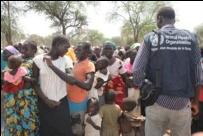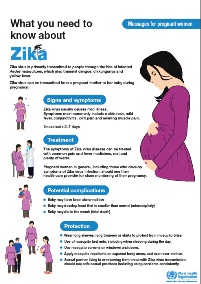 Young children are particularly at risk of meningococcal diseasesMeningitis is a serious and potentially fatal disease caused by bacteria, and a cause of widespread fear in Africa. The disease kills thousands every year and is particularly devastating to children and young adults. The sickest patients typically die within 24 to 48 hours of the onset of symptoms. Of those who survive, 10% to 20% suffer brain damage, hearing loss or a learning disability.
Young children are particularly at risk of meningococcal diseasesMeningitis is a serious and potentially fatal disease caused by bacteria, and a cause of widespread fear in Africa. The disease kills thousands every year and is particularly devastating to children and young adults. The sickest patients typically die within 24 to 48 hours of the onset of symptoms. Of those who survive, 10% to 20% suffer brain damage, hearing loss or a learning disability.
Most of the large epidemics in Africa are caused by meningococci belonging to serogroup A. Vaccines against different forms of meningococcal disease have been available for over 30 years. Since these vaccines only protect those vaccinated for a maximum of 2–3 years and do not protect young children, who are particularly vulnerable to the disease, they are unable to prevent epidemics. As a result, mass vaccination campaigns have to be repeated year after year.
In 2010, WHO pre-qualified a new conjugate vaccine “Neisseria meningitis (Nm) A conjugate vaccines” called the “MenAfriVac”, which offered promises for long-term (over 10 years) low cost protection. The vaccine is also effective in saving lives of the children.
In October 2012, Sudan with support from the GAVI Alliance and technical support from WHO introduced the conjugate vaccine in the country. Over 24.78 million people between the ages of 1 and 29 years living in some of the high-risk states of the country were vaccinated in two phases. The remaining states which are prone to repeated outbreaks of meningococcal meningitis will be covered in a second phase starting in 2013. With the introduction of the new meningococcal A conjugate vaccine in Sudan, and through achieving a high coverage of the vaccine in the target age group of 1–29 years, it is expected that Sudan can eliminate meningococcal A epidemics from the country.
Following this risk assessment, South Sudan will file an application to GAVI for support in procuring meningitis conjugate vaccines to protect its vulnerable people for life from the recurrent threats of epidemic meningitis. The whole campaign needs to be conducted in phases to ensure optimal coverage and quality of campaign. It is expected that starting in October 2013, South Sudan may complete vaccinating its 5.6 million at risk population with meningitis conjugate vaccines in three phases by 2015. This may well see the end of meningitis from South Sudan, and perhaps, from the Region.
Related link







